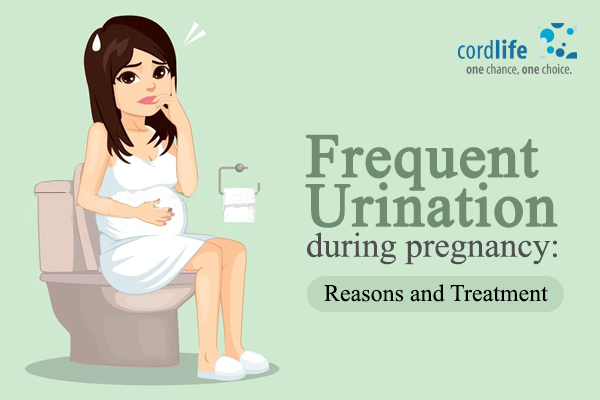Table of Contents
We know that Frequent urination during your pregnancy is something that you definitely don’t enjoy. In fact, increased urination during pregnancy might leave you sleep-deprived, especially at night, and can make you feel very tired. Understand the reasons for all these symptoms, and ways to deal with them.
What Are The Reasons For Frequent Urination During Pregnancy?
You can expect to urinate more frequently during the early stage of your pregnancy. Well! your need to visit the bathroom may reduce a bit by the time you hit the second trimester, but as you enter the third trimester of your pregnancy, your tendency to urinate might just increase yet again. The reasons are as follows:
- During pregnancy, your blood volume nearly doubles. As a result, your kidneys have to deal with more fluid.
- As your kidneys become more efficient, your bladder will fill up more often, so you’ll need to empty it more often.
- Your ligaments, including the ligaments of the urethra, soften and loosen as a result of hormonal changes, which makes it harder for you to hold your urine.
- As your uterus grows, your bladder will be squeezed harder, resulting in more frequent urges to urinate.
- By the end of your pregnancy journey, you will feel the urge to go to the bathroom more, as your baby drops into the pelvis and put pressure on the bladder.
What Is The Frequency Of Peeing Frequently During Pregnancy?
You may experience trimester–wise frequency during pregnancy. Take a look at the mention of it below.
In Early In Your Pregnancy
Once the embryo attaches to your uterus, your body produces hCG (human chorionic gonadotropin) hormones. Thanks to the fluctuating pregnancy hormones that are responsible for increasing the blood flow and fluid in your body, during this time. These hormones also kick your kidneys to walk that extra mile to remove the waste material from your body. Around this time you would also miss your periods, and might experience a few early signs of pregnancy like morning sickness, breast tenderness, etc. You might even urinate more often as early as two or three weeks after you’ve conceived.
In Your Second Trimester
As you hit the second trimester, your tendency to urinate frequently slowly declines, thus not putting much pressure on your bladder. However, you can’t expect yourself to feel relieved for a very long time.
In Your Third Trimester
You will feel a spike in your urinating symptom in your third trimester. In fact, if you develop a tendency to visit the bathroom more often during the 8th month of your pregnancy, it is mainly because the baby drops down into the pelvis and exerts pressure on the bladder, thus getting ready to move out of your womb. As a result, you might wake up many times at night to visit the bathroom.
How To Deal With Frequent Urination During Your Pregnancy?
You might urinate 6 to 8 times a day, depending upon how well you’re hydrated.
We know that you’re trying to stay healthy during pregnancy with a lot of healthy food and fluid intake. Therefore, there is no way you can really avoid urinating frequently. However, here are a few tips to make you feel better.
- If you feel you are waking up several times at night, try to cut down on your fluids after 4 pm. Say no to caffeinated beverages as caffeine can increase your urination.
- As you enter the last trimester of your pregnancy, you may feel like peeing whenever you cough, sneeze or laugh. This condition is also known as stress. incontinence. By performing Kegel exercises you can keep your pelvic muscles strong and can prevent stress incontinence.
- Lean forward when you urinate to empty your bladder.
- Since your weight can put extra pressure on your bladder, keep a watch on your weight.
- Try not to hold your urine to avoid urine infection.
Frequent urination is perfectly normal during your pregnancy. However, remember, even if this frequency comes along with burning or painful urination and some other signs of UTI, don’t worry. Even after the delivery of your baby, your body continues to remove additional fluid that you gained while you were carrying your baby in your womb.
Also, to get some more information on pregnancy, postpartum, and baby care, and to get the benefits of cord blood banking log in to our blog page.
